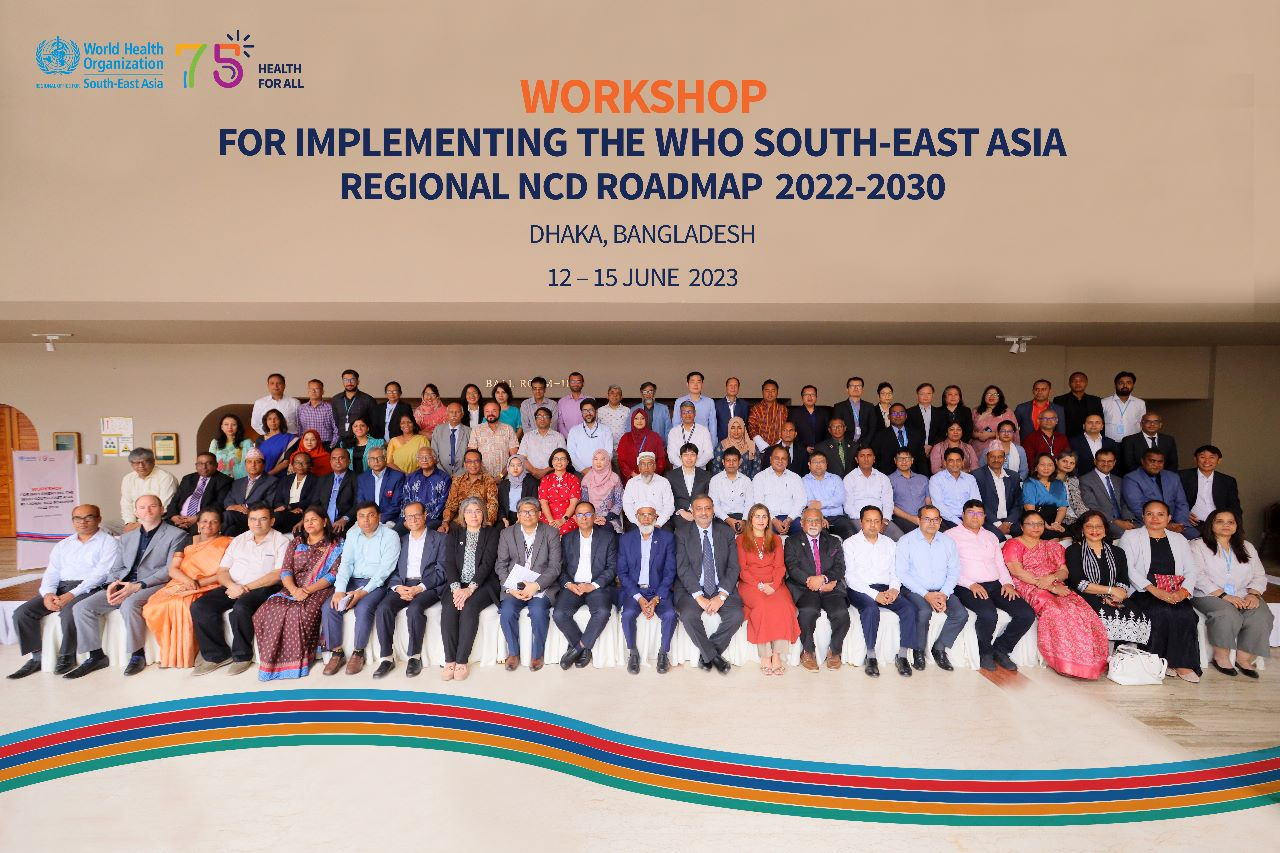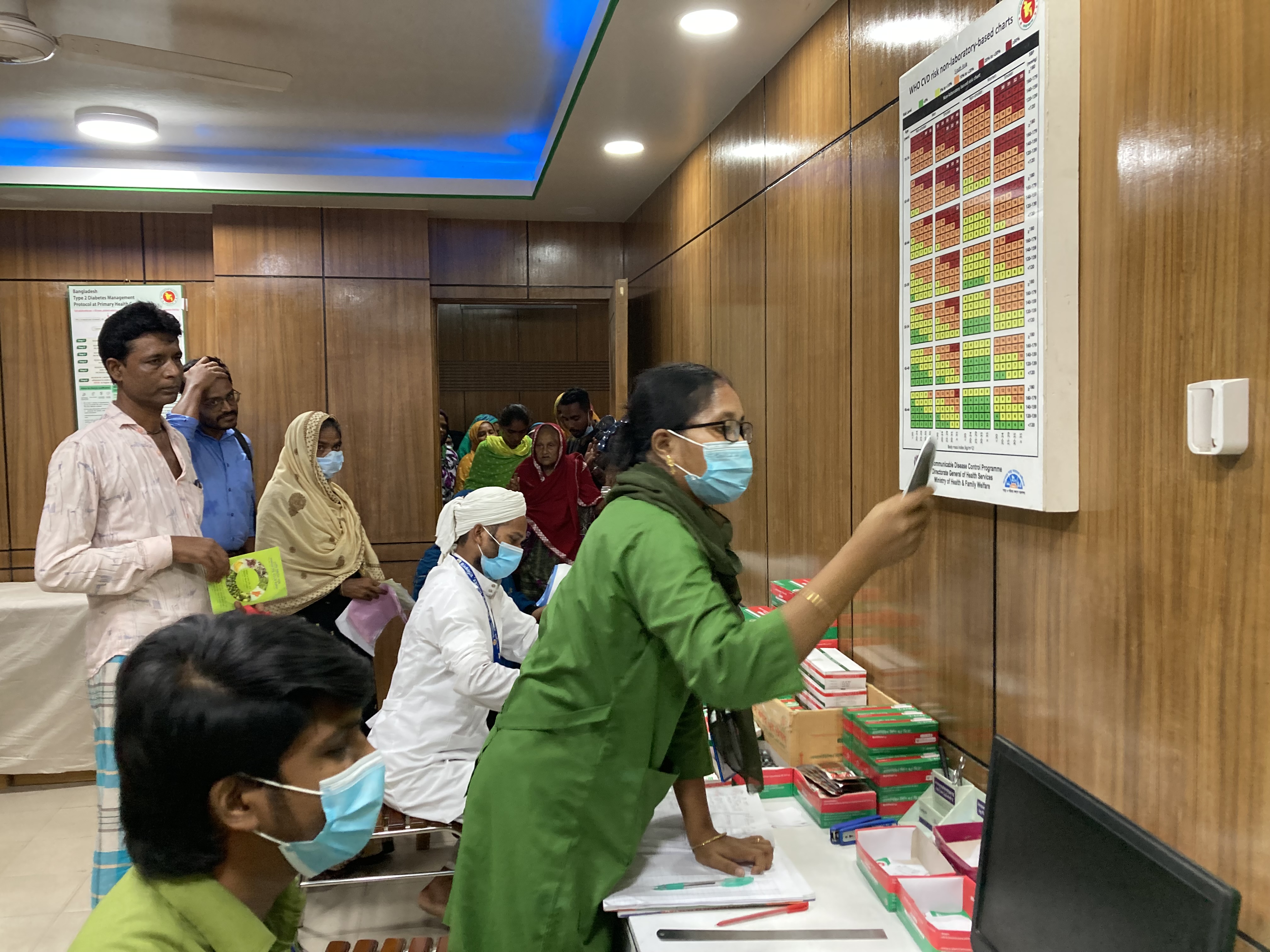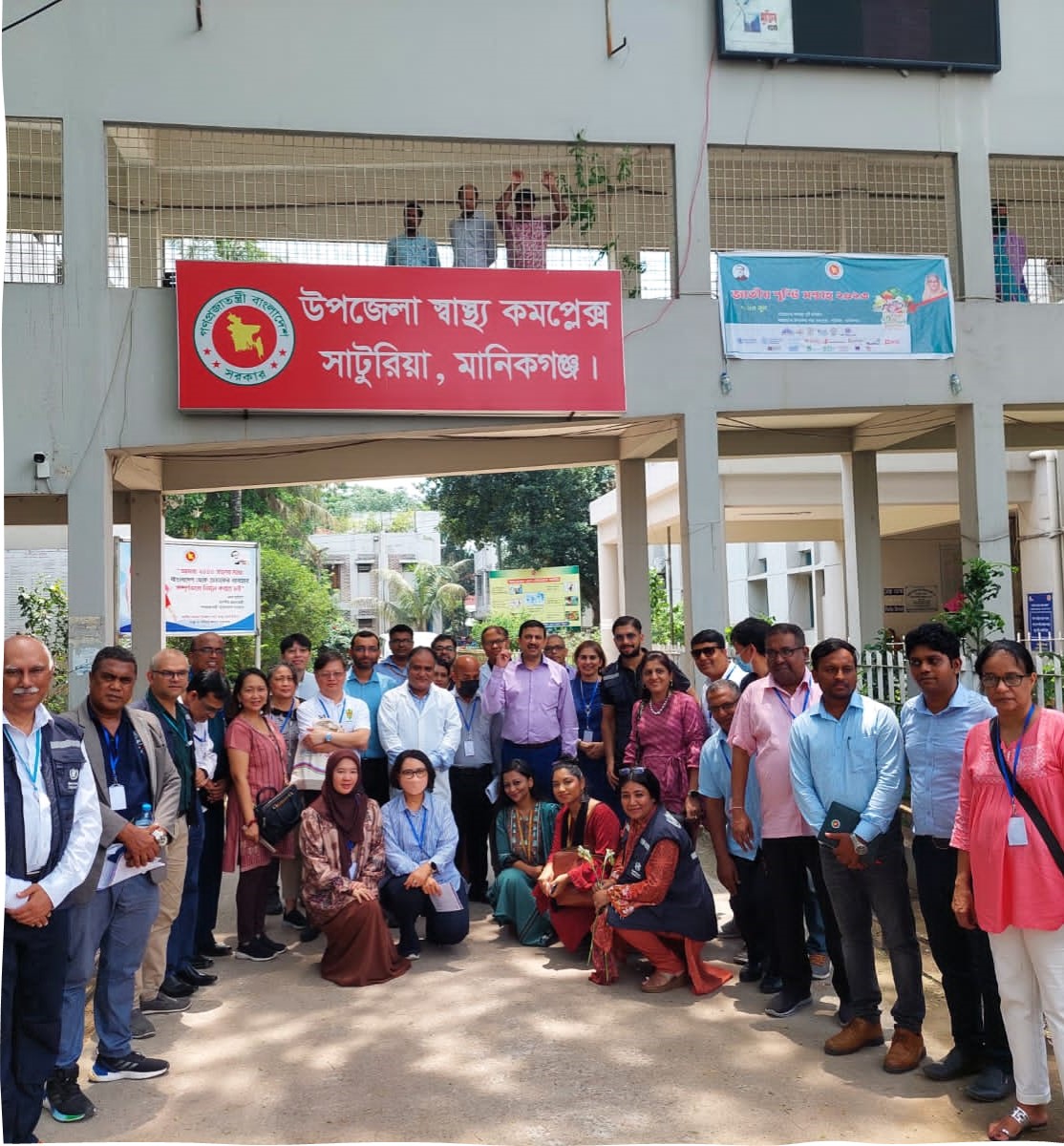
Photo credit: WHO/HPN/NCD
In the South- East Asia Region, NCDs cause an estimated 9 million deaths annually, which means that 69% of all deaths in the Region are due to NCDs. Importantly, almost half of NCD mortality is in the age group of less than 70 years. Today, an estimated 245 million people in the Region have raised blood pressure. Nearly 100 million are diabetic. The trend of the cancer burden is rising and expected to rise further. In our region, an estimated 2.3 million people developed cancer in 2020, and 1.4 million died of the disease.
Since 2014, preventing and controlling NCDs has been a Flagship Priority in the Region, and important progress has been made. The Region is currently on track to achieve the target of a 30% relative reduction in tobacco use prevalence between 2010 and 2025. Even with these positive outputs, at the current rate of progress, the Region will fail to achieve the 2030 Sustainable Development Goal target of reducing premature mortality from NCDs by 2030.
“We are at a history-defining juncture. We have guidance on an expanded set of ‘Best Buys’ in the form of a menu of policy options and cost-effective interventions for the prevention and control of NCDs. A range of new technologies and digital solutions are available to empower and engage people who are living with or at risk of NCDs.” said Dr Poonam Khetrapal Singh, Regional Director, of WHO South-East Asia Region in her opening address.
The workshop aimed to support countries in the prioritization and acceleration of NCD prevention and management with a specific focus on accelerating the prevention and control of hypertension and diabetes, identifying the most impactful NCD interventions within their context, closing the gaps in cancer care services through regional collaboration and Integrating NCD services in when responding to emergencies.
The workshop witnessed a diverse participation of senior officials of the Member States of the Region responsible for NCD programme management, cancer care and health systems, technical experts, representatives of global partners engaged in NCD work, and WHO staff from all three levels. Participants shared their good practices of the countries for cross-learning, engaged in lively discussions and hands-on activities, and had an opportunity to experiential leaning to the participants with a visit to the Upazila Health Complex and the attached community centre in the Manikganj district to observe how the country has integrated the NCDs services in primary health care.
The workshop successfully achieved several outcomes.
One of the key outcomes was the ‘Dhaka Call to Action – Accelerating the control of cardiovascular diseases in a quarter of the world’s population’. The Call to Action represents a set of prioritized actions and interim milestones that are based on the SEAHEARTS Initiative. The call to action charts a roadmap for scaling up management of hypertension and diabetes in primary health care together with implementing measures for tobacco control, salt reduction, and elimination of trans-fatty acids.
Another was the establishment of the platform SEACanGrid to facilitate networking among institutions, shared learning and resources, stratified treatment, workforce capacity building, technical backstopping, and collaborative research.

Photo credit: WHO/HPN/NCD

